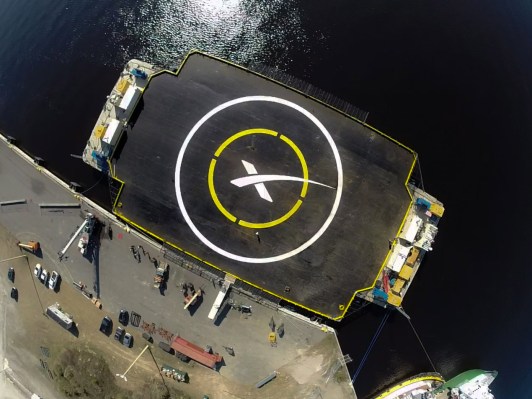We are fairly proud of our mastery of nature, but occasionally it can remind us that no matter how many billions, nor how many autonomous drone cargo ships we throw at it, it can still thwart our great designs. SpaceX is still aiming to launch DSCOVR, an observatory satellite, later today, but the first-stage rocket recovery attempt that was planned along with that mission has been sadly scrubbed, owing to nature’s wrath.
In a brief update, SpaceX said that while it still plans to launch DSCOVR during a launch window that kicks off at 6:03 PM ET today (after scrapping two previous attempts Sunday and Tuesday), its planned recovery attempt for the reusable first stage of Falcon 9’s rocket won’t be part of the mission. SpaceX has retrofitted a huge seafaring vessel with autonomous smarts that let it hold its position in the ocean to within 3 meters, providing a stable landing pad for the stage 1 rocket, but the drone ship can’t handle the three-story swells currently afflicting the Atlantic Ocean. The drone ship is working on only three of four engines due to a malfunction, making any attempt to thread the needle on those huge waves inconceivable.
SpaceX’s launch today is still exciting, but the Falcon 9 rocket recovery was a more important part of the mission for Elon Musk’s spacefaring startup. A previous attempt resulted in a dramatic explosion thanks to a shortage of hydraulic fluid, but that was the closest the company has yet come to getting its rocket back to ground safely. Proving the viability of its reusable rocket recovery system is extremely important to SpaceX’s long-term vision of more affordable, efficient spaceflight. SpaceX says that while they’ll try to do a soft landing in water with today’s launch, survival isn’t expected based on the extreme sea conditions. They should still garner useful landing data from the attempt, however.
Musk is probably already hard at work solving for brownstone-sized waves with the drone landing pad design, so hopefully this won’t happen again.
